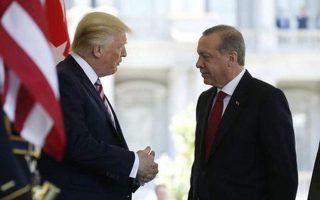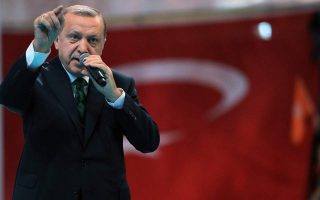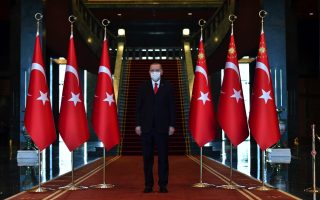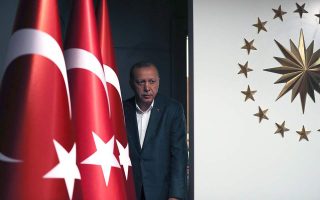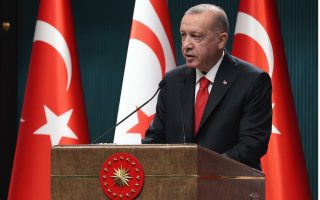With Turkey, ‘no matter what’
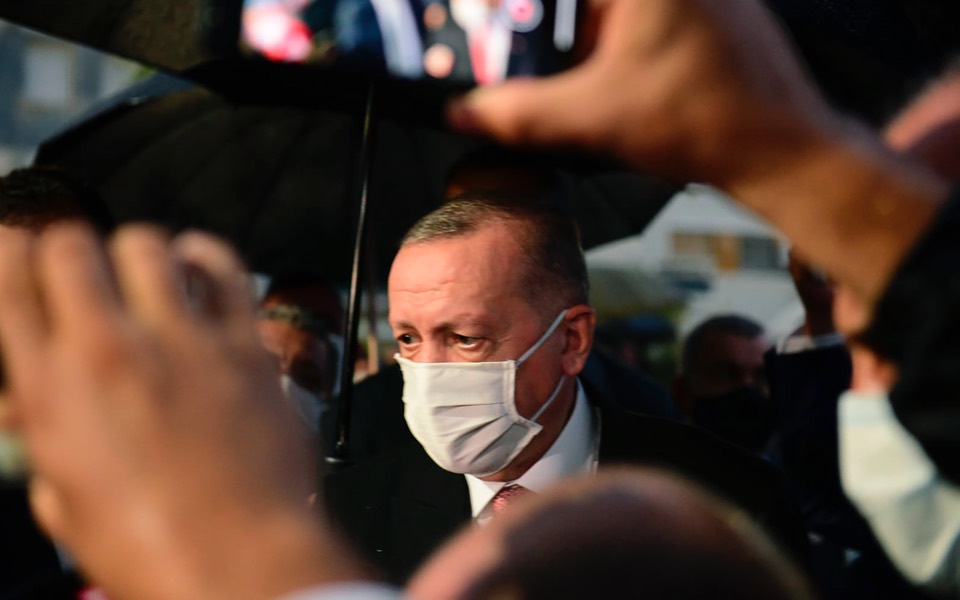
It would be prudent to temper our expectations that the United States under a new president will be able to effectively control Turkey’s expansionist dreams. It is true, some hope, that with Joe Biden there will be a shift to a values-driven foreign policy. Be that as it may, let’s face it, America is like a supertanker – it changes direction very slowly.
Just over weeks ago, on November 1 in a Kathimerini article, I argued that Turkey has no place in NATO. Because it flagrantly violates all the principles and values on which NATO is based. Freedom, democracy, human rights and the rule of law. These principles and values must be embraced by NATO members. I cited Turkey’s involvement and behavior in Syria, Libya, Nagorno-Karabakh, vis-à-vis the Kurds and journalists, the S-400, the threat of casus belli against Greece, women and other human rights issues in Turkey. None of the above are even remotely compatible with NATO’s founding principles, values and ideals.
In the Economist’s Democracy Index 2019, among 167 countries, Turkey is ranked 110th, lower than Pakistan and Nigeria but marginally better than Algeria.
With all the above facts in mind, I confess I was annoyed by the statement in Thessaloniki by the US ambassador to Greece, Geoffrey Pyatt, quoted in the National Herald of New York on November 5: The top priority for the US, for Germany and for all of Greece’s European Union partners is the revival of the exploratory talks, and the American government is “working very hard” to support Prime Minister Kyriakos Mitsotakis in this, Pyatt underlined. “I don’t think there are any two NATO allies who are more strongly aligned than Greece and the United States on the principle that, no matter what, we have to keep Turkey anchored in the West.”
No matter what! Α really difficult requirement to digest.
I do not know how the US formulates and evaluates its strategic interests. Nor do I know if and to what extent it considers that its own interests in the region parallel ours. As far as I can understand, the Americans view Russia and China as the main threat. We are facing one threat, Turkey. Because we participate in the NATO alliance, together with the Americans, we often, out of solidarity, define our choices in ways that would not necessarily coincide with the choices we would have made outside NATO. For example, we do not buy excellent Russian weapons that are cheaper and we do not let the Chinese install 5G networks, which are also cheaper and possibly better. We embrace without much debate the broader US-defined strategic goals of NATO, aware of our relative weakness to influence choices within the Alliance. Let me remind you that in August 1974, NATO decided that Article 5 of the Treaty (an attack on one would be considered an attack on all) only concerns attacks on one member from a non-member. This paradoxical interpretation is still supported today by NATO, which refuses to warn Turkey that any attack on Greece will activate Article 5 of the Treaty against it. How do you, dear reader, interpret Pyatt’s “no matter what”?
The North Atlantic Treaty of 1949 does not provide for the expulsion of a member. But, where there’s a will, there’s a way. I expect that most Europeans (except perhaps France), despite their doubts about Turkey, will try to sweep the violations of NATO principles under the rug, they will turn a blind eye. The answer to this shortsighted, ostrich posturing is the awakening of public opinion. Public opinion in NATO member-states should be informed about Turkey’s violations of NATO values and principles and demand the expulsion of a member-state that flagrantly and dangerously violates the founding principles and values of the Alliance. They should demand the expulsion of a country that is no longer democratic.
On November 9, 2009 in Berlin, NATO’s then secretary-general, Anders Fogh Rasmussen, had this to say: “NATO stood firmly in defense of the fundamental principles shared by all allies: freedom, democracy, human rights and the rule of law. Our principles form the bedrock of our Alliance. They are what have kept NATO indispensable for over 60 years. And they stem from a simple idea. That all people should be allowed to achieve their natural potential as human beings. And that no group, creed, or government should stop a person from reaching their potential. We have a word for this. And that is freedom. Freedom lies at the heart of our principles, along with democracy, human rights and the rule of law. These principles make us who we are. They are essential to our way of life. And that is why they must be protected.”
It is conceivable that the US has strategic interests in Turkey that I cannot appreciate. Nothing prevents the United States from concluding bilateral agreements with Turkey without forcing NATO to swallow its original principles and its members to have to deal with a so-called ally that systematically and increasingly violates all the rules and values of the Alliance.
In conclusion, it is not Greece’s job to keep Turkey anchored in the West. Turkey must want to stay in the West with all the obligations that this choice entails. For Greece, the immediate priority is to arm itself to better repel Turkish expansion.
Stefanos Manos is a Greek politician, a former MP and a former government minister.

